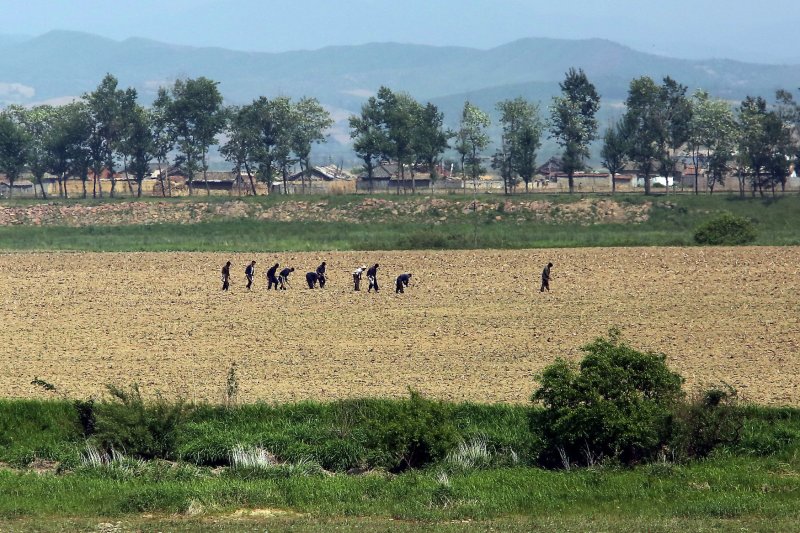A lack of rainfall in North Korea has hit the country’s agriculture and grain output declined in 2017. Photo by Stephen Shaver/UPI |
License Photo
Dec. 20 (UPI) -- North Korea's grain production has declined, and output decreased by 2 percent in 2017.
South Korea's Rural Development Administration said Wednesday in its report on North Korean agriculture the impact of climate, pests and disease have contributed to the reduction, Yonhap reported.
The South Korean government agency used domestic and foreign sources of data, and used satellite images as well as data from remote sensing technologies to draw their conclusions, according to the report.
The report includes estimates of production.
In 2017, North Korea produced a total of 4.71 million tons of grain, or 2 percent less than last year's 4.81 million tons.
Rice comprised the bulk of production at 2.19 million tons, followed by corn at 1.67 million tons, potatoes at 530,000 tons, legumes and other grains at 170,000 tons, and barley at 150,000 tons.
Unfavorable weather is responsible for the decline.
Unlike 2016, when better conditions allowed for more output, North Korean farmers had to cope with a drought during the spring rice planting season in 2017.
A lack of rainfall during the critical months of May to September has also hit corn crops, which declined by 30,000 tons, or by 2 percent.
Barley production dropped by 12 percent year-on-year, owing to higher-than-average temperatures and the effects of a drought.
Lee Jeom-ho, section chief of the International Cooperation on Technology department at RDA, said lack of rainfall in the summer months had an adverse impact on North Korean agriculture.
Tomás Ojea Quintana, the U.N. special rapporteur on North Korean human rights, recently said humanitarian aid could be affected by the current levels of sanctions against North Korea, which have been put in place to convince Pyongyang to give up its nuclear weapons.
"We need to deal with the nuclear problem, but we need to properly ponder our means for achieving that goal," he said, according to The Washington Post.















